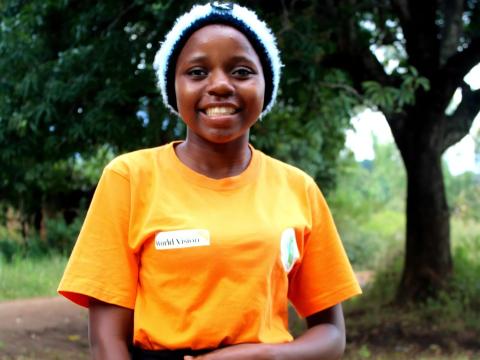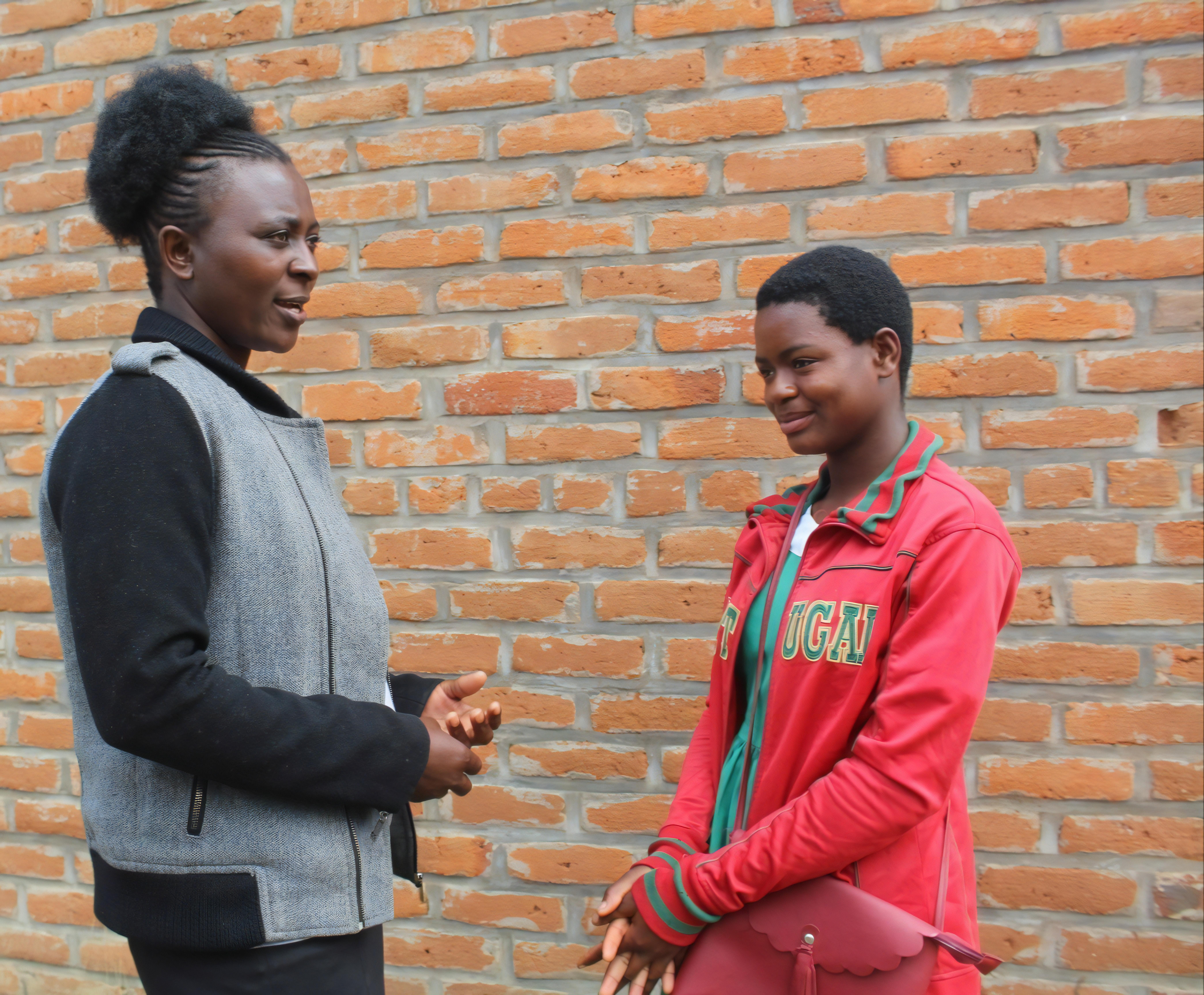Empowering Young Women in Malawi: Breaking barriers to health and education

In Malawi's Mulanje district, young women like Loveness and Veronica are reshaping their futures with support from the Adolescent Girls and Young Women (AGYW) project. Funded by the Global Fund through World Vision and implemented by the Girls Empowerment Network (GENET), this project is a vital lifeline for young women facing the harsh realities of HIV/AIDS, poverty, and harmful cultural practices.
Loveness' story
Loveness, 20, from Mabuka once lived under the shadow of misinformation about HIV. Influenced by cultural beliefs and lacking access to accurate information, she made reckless choices without understanding the consequences. That changed after she attended AGYW training sessions, and her life took a new direction.
Armed with knowledge about HIV prevention, Loveness gained the courage to get tested for HIV and learned how to make healthier choices. "Knowing my HIV status has empowered me," she explains. "I protect myself from unsafe situations now, and I can educate others."
As a peer educator, Loveness now helps other young women understand HIV prevention and access health services. She remember how stigma once stopped her from accessing HIV testing and reproductive health services. "People would say only the sick go for HIV testing. But now, I know the importance of regular testing and encourage others to understand that it’s for everyone’s health, not just those who are visibly ill."
Veronica's story
In nearby Magileta village, 15-year-old Veronica faced a different challenge. Pressured by her peers, she dropped out of school and entered into an early marriage. It wasn’t until AGYW peer educators visited her village that she realised she could take back control of her life.
"I was motivated to leave my marriage, return to school, and take control of my health," she says. With support from the project, Veronica underwent medical screenings, ensuring she was not pregnant and was free from sexually transmitted infections (STIs). She is now back in school with new hope and determination for her future.
The stories of Loveness and Veronica reflect the wider challenges facing many adolescent girls in Malawi: poverty, limited access to family planning, and social pressure means adolescent girls are vulnerable to HIV, early pregnancies, and child marriage.
Naomi Nkhonjera, a project officer with GENET, stresses that young women are Malawi’s future, yet their potential is often hindered by these challenges:.
"Young girls are assets to our country’s development, but gender inequalities and violence hold them back," says Naomi Nkhonjera, a GENET project officer.

Through the AGYW project, peer educators are driving change. Their training has equipped them with skills to address critical issues like HIV and AIDS, gender-based violence, and sexual and reproductive health and rights.
Peer educators, like Loveness and her colleague Alice, deliver life-changing information, connect girls to health services, and advocate for safer practices within their own communities. "We’ve reached over 9,000 girls and referred nearly 2,000 to health centres," Alice shares. "We've also helped dissolve 22 child marriages with the support of local leaders and child protection services."
"We’ve reached over 9,000 girls and referred nearly 2,000 to health centres. We've also helped dissolve 22 child marriages with the support of local leaders and child protection services."
Despite these achievements, challenges remain – particularly in remote areas where access to health services is still limited, even though there is a high demand. "We need mobile clinics to reach all the girls in need," says Alice. She and Loveness both hope to see more health services become available for rural communities.
To address this gap, the Global Fund is supporting the launch of mobile outreach clinics as part of Grant Cycle Seven. One clinic will be established in each of the four target districts, each staffed by five medical professionals and equipped with an off-road van. These mobile clinics will provide youth-friendly services – including STI screening, HIV testing, and family planning – bringing essential healthcare closer to adolescent girls in hard-to-reach communities.
Today, Loveness and Veronica – two young women empowered by the AGYW project – are symbols of resilience and transformation. Loveness is now a passionate peer educator, ensuring other girls don't have to face the same uncertainty she once did. Veronica, who left an early child marriage, has returned to school with renewed confidence and hope for a bright future. Both young women urge adolescent girls to seek out the information and support available to them. "Protecting your health and education should always come first," Loveness says, underscoring the AGYW project's goal to equip girls with knowledge and support.
Their stories highlight the powerful impact of community-based education, mentorship, and access to health services. With the right tools and opportunities, girls across Malawi are being empowered to change their future, one young woman at a time.